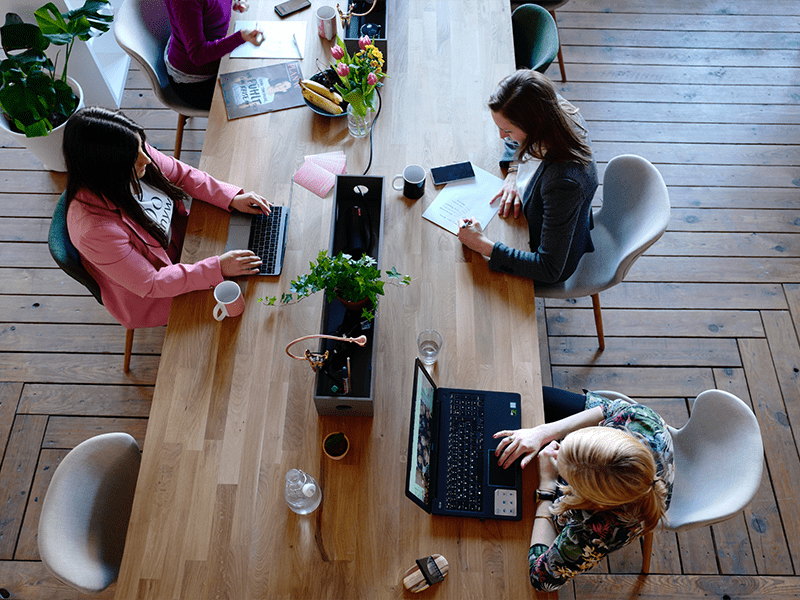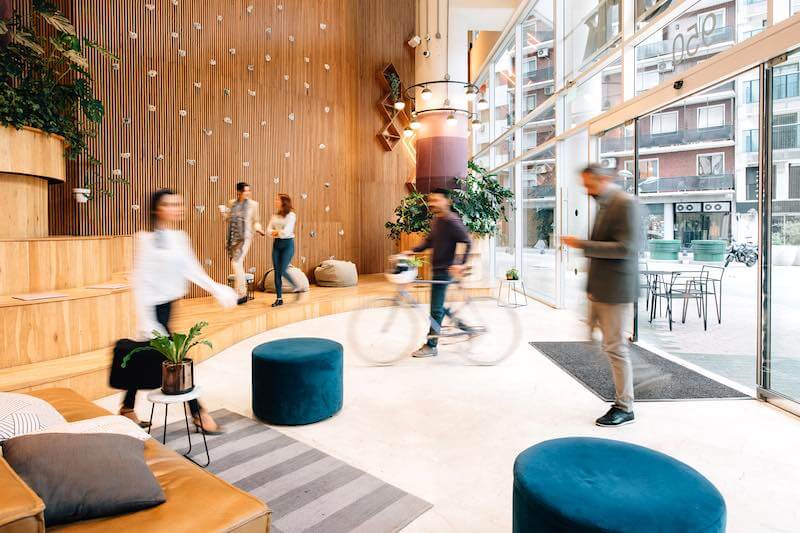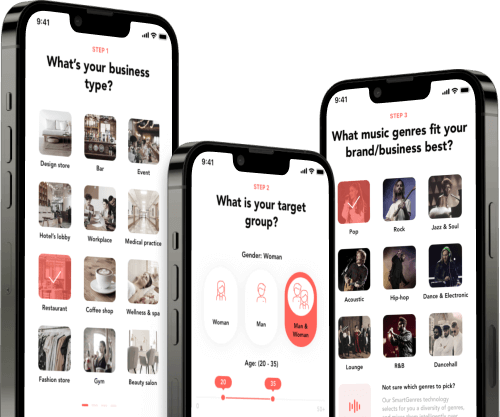Music for Office: Creating a relaxed but productive atmosphere at work

The clouds have parted a little bit and the silver lining seems just within reach. This is what happens after every world-changing event – with the challenges it presents, come solutions to tackle them. Through the pandemic, the world held on with changing work styles, taking remote work more seriously. Now that things are going back to normal, offices are more than eager to welcome a new work culture with hybrid work schedules, music for office work and making more space for employee expression.
Working from home allowed people to be productive from their safe space. Going back to an offline work environment, therefore, might prove challenging for many. Ir brings to the fore the focus required for people to complete their tasks. Especially when the changes in both cases, at the onset and waning of the pandemic, are essentially experimental.
Music is the one thing that has proven to help workers find that zen space in their minds in any workspace. Studies suggest that 90 per cent of employees perform better when there is music involved. It is a very common sight to see people plugged in and working at the rhythm that suits them the best. Music has been credited with increasing the productivity of 61 per cent of employees. 88 per cent of businesses also believe it increases employee satisfaction significantly.
But what does this mean for the future of workspaces?
Dynamic workplaces indeed!
The change has been gradual yet seismic. With greater access across the globe, businesses have given way to an array of different working methods. Thanks to the pandemic, the nature of the conduct at work have taken a completely different form. The employee’s benefit is now also the company’s benefit. And as employees become more individualistic, workplaces that take employees’ well-being into consideration fare better.

Music being a big part of individual choice impacting work, it is imperative to consider it as a key component in designing the workspaces of the immediate present and future.
While it is well established that people have preferences for music to get into the groove while working, that is not at all where the role of music ends. If we look at the history of human interaction with sounds, we find that it is a tool for making existence bearable. We use music not only to stay active, increase concentration and process emotions but also to relax and vent.
Workspaces that intend to incorporate this basic instinct that we possess for melodies can largely profit from incorporating music in office locations. Employees can exercise their freedom to use the music of their choice for greater work satisfaction. The common spaces become restorative spaces where they can recuperate from their long day. This is where music for the office can make its greatest impact on the everyday routines of a company’s workforce.
Why is music for the office recommended?
Music has the power to indulge in as well as transpose our emotions. It can also block distractions and boost memory. According to the World Economic Forum, 57 per cent of Americans believe that music helps them regulate their mental health. Not only that, a study conducted on a group of software professionals by the University of Windsor in 2005 makes an argument for the lowest output without music. However, everyone may have differing tastes in music and it is always a bad idea to impose a general solution to it. The answer to this conundrum could be several types of music that have a widely uniform effect on people.
Meanwhile, what music can also do is breathe life into the homogenous dull, drab and serious environment of workplaces. Another benefit that it brings forth is breaking away from formal interactions, making space for a stronger attachment among co-workers. This facilitates better networking channels. Motivated workers are 50 per cent more likely to achieve targets faster and with higher efficiency.
Moreover, music for offices can also be a tool for businesses and offices to forge their own identity. The music playing in the office spaces sends out a clear signal of what the office represents. It can also be used to enhance internal communication strategies and positively affect the brand image. With offices changing their overall landscape in hybrid and shared office spaces, music for offices can become the glue that keeps the team together and inspires collaboration.

What kind of music works in an office space?
A study suggests that soft background tracks are favourable because of the non-detrimental nature of the sounds. When it comes to ambient music, it is important to understand its immersive-ness. As the onus of making offline work more rewarding rests on the companies, the following kinds of music can prove to be effective for this purpose.
Classical music
The Mozart effect is commonly credited to increase reasoning ability almost instantly. Even if it is contested, the aura created by the music composed by the greatest musicians in the history of humanity can greatly help in increasing focus. It has been widely debated that well-known mathematicians find themselves to be more accurate while listening to classical music.
Soundtracks
Many videogames, animes or movies tend to have great lyric-free soundtracks. They are familiar, comforting and musically motivating at an awe-inspiring level. They strike a chord with many as all of us are the main characters of our own story, aren’t we?
Lo-fi
Low fidelity music is a testament to the presence of flaws and how they could be deliberately imperfect, which is known to put people at peace. Japanese, hip-hop and Bossa Nova lo-fi music are widely popular, attracting billions of listeners seeking music to focus, relax and even sleep.
Jazz and blues
According to music theory, jazz, much like lo-fi, is a musical outlier that makes it interesting to listen to. The satisfaction of that is very audible in the music and has been proven to boost creativity. Studies suggest that jazz stimulates theta brain waves that result in divergent thinking ability. In simpler words, it helps one to think differently and find unique solutions.
Chill-out music
As the name suggests, chill-out music is easy to listen to. Its slow but consistent tempos, minimal lyricism and cool melodies are the perfect meditative tool that keeps one on their toes, much like performing musical ballet. It fills the room and moulds itself to the mood fluidly, making for a great modern ambient listening experience!
Music for office – the need of the times, nay, the hour

Our working methods have changed drastically in the last two years. Since the risk of easy burnout is far greater than ever before, it is no wonder that self-care is an important topic everywhere. The Great Resignation of 2020 and 2021 is a very visible example of that. To combat that, it is pertinent and incumbent on companies to look at the ground reality and not derail insights that can make a difference. Music in offices is a sure-shot way of slowing down the breakneck speed of the extremely competitive corporate world.

The concept of music for the office perfectly intersects with the concept of better employee engagement. It should come as no surprise that offices need to become a centre of prolific creativity while creating a relaxing environment for their personnel, slowly doing away with stress and mental health hazards while becoming more purposeful.
To fulfil this vision for your office space, head over to Soundsuit to explore the music that fits perfectly into it, completing the picture.



